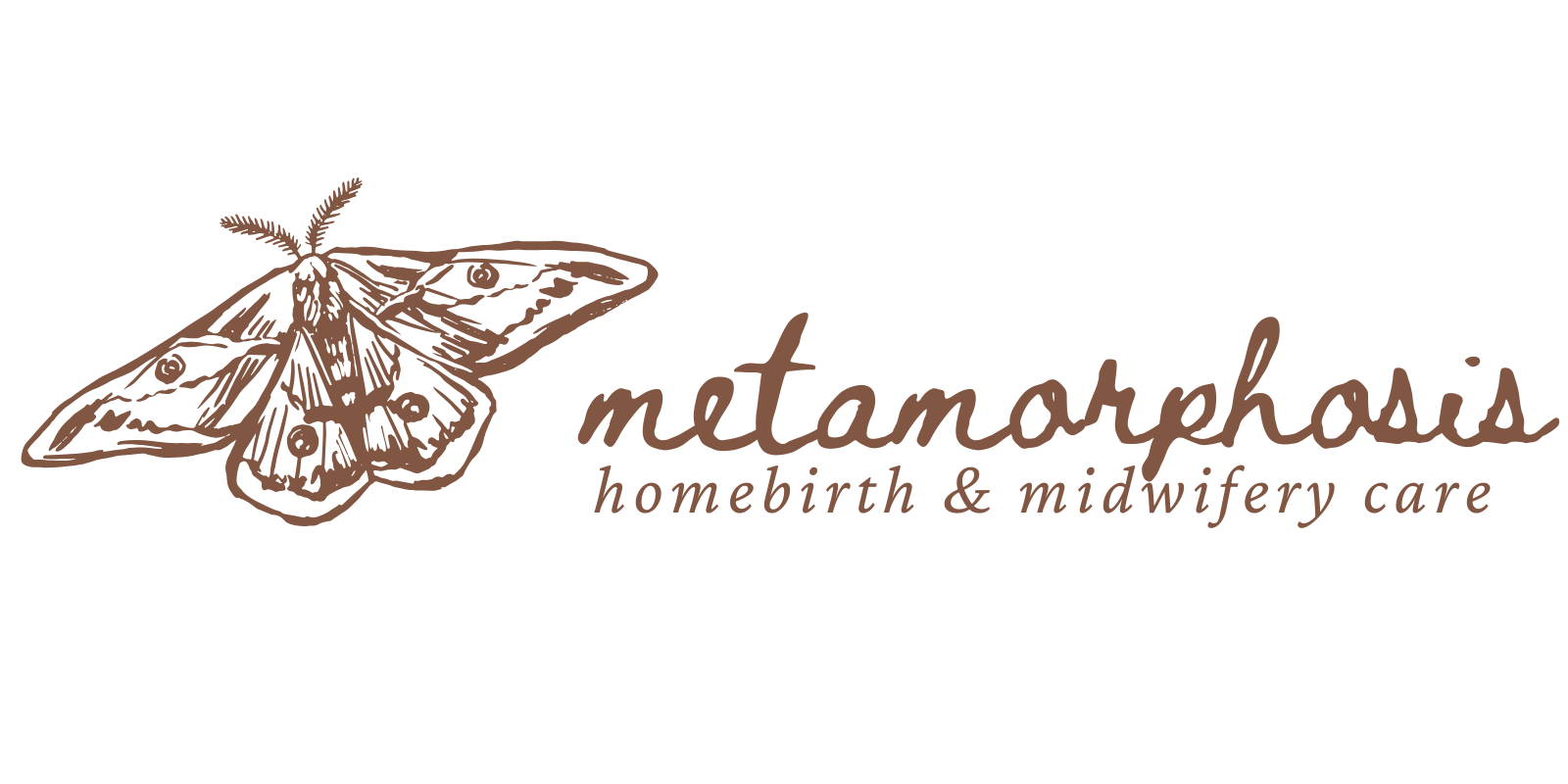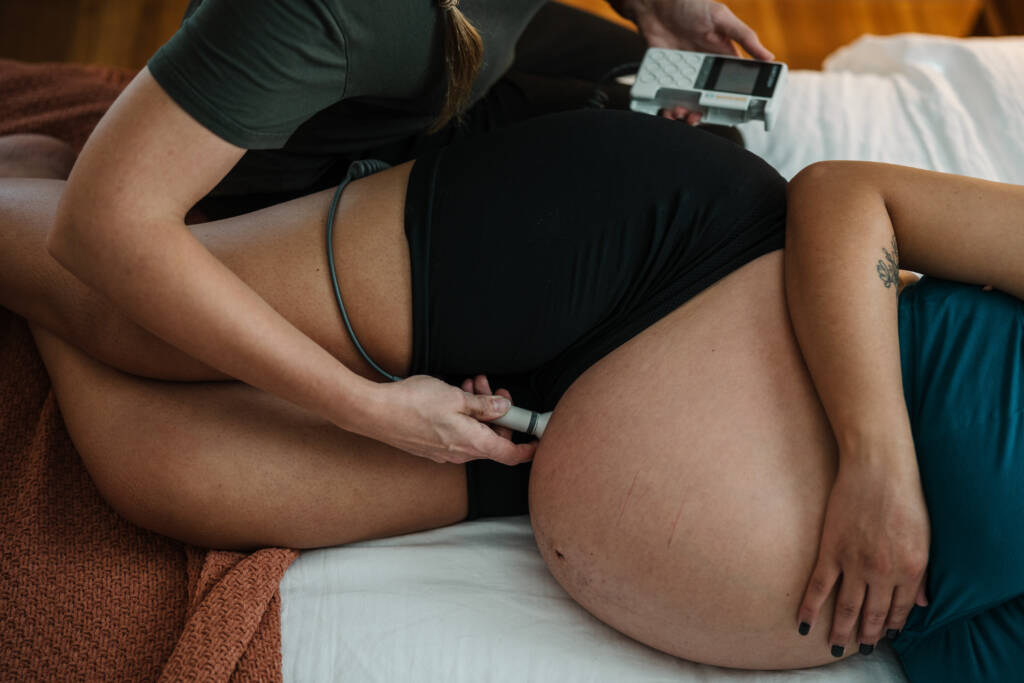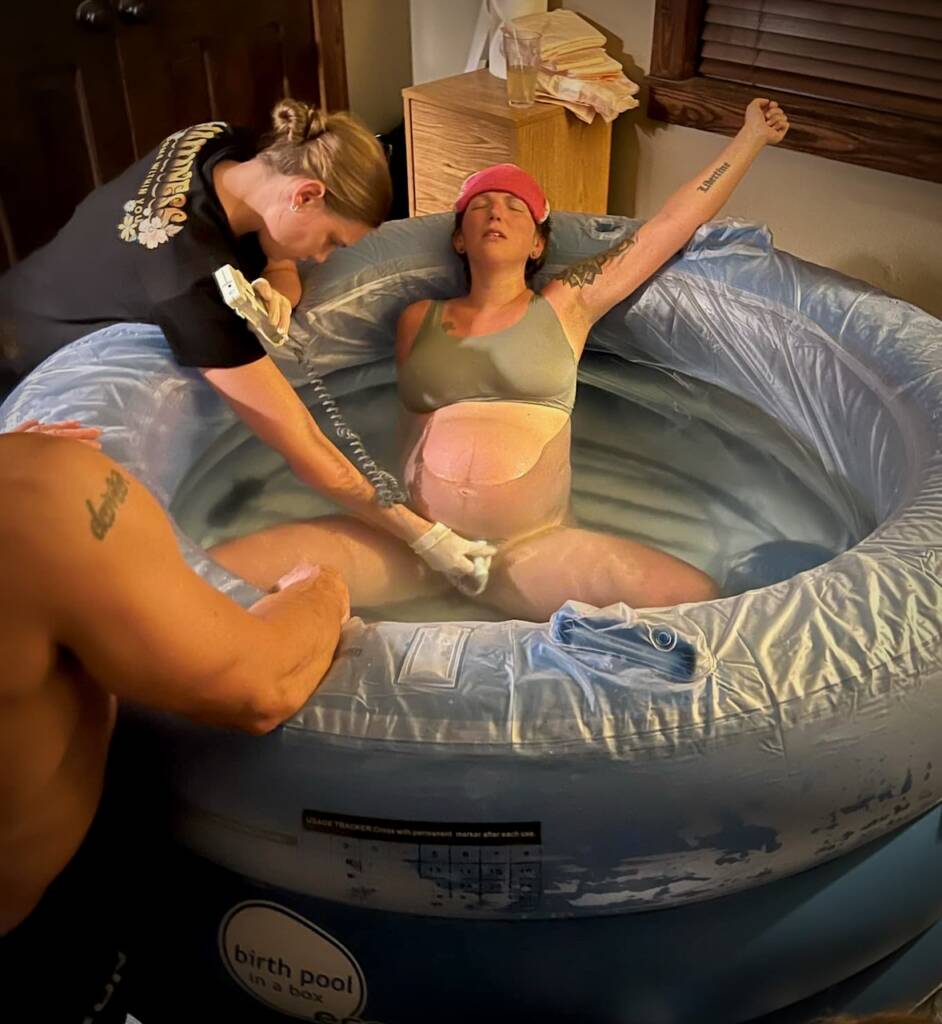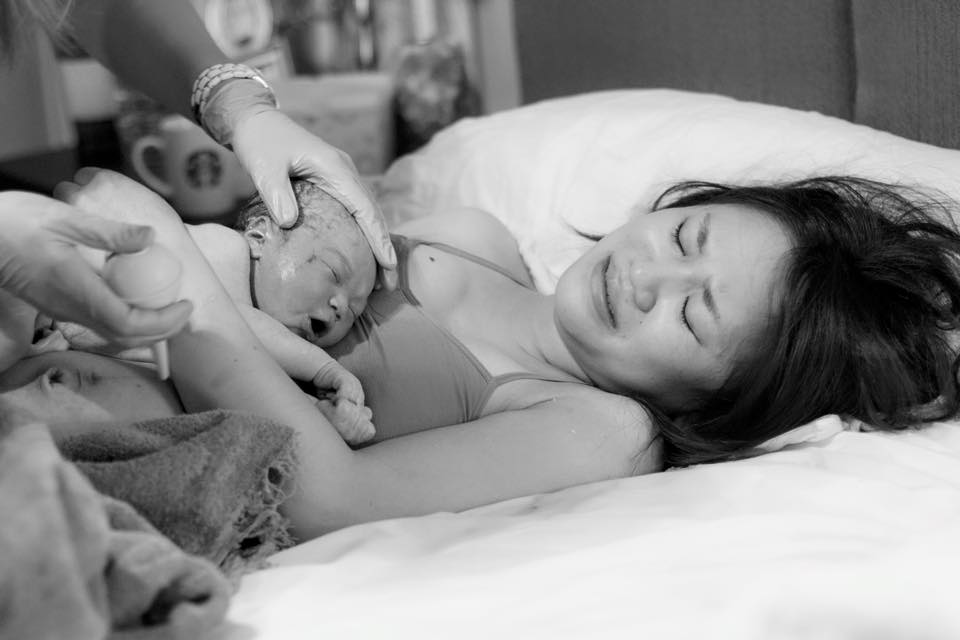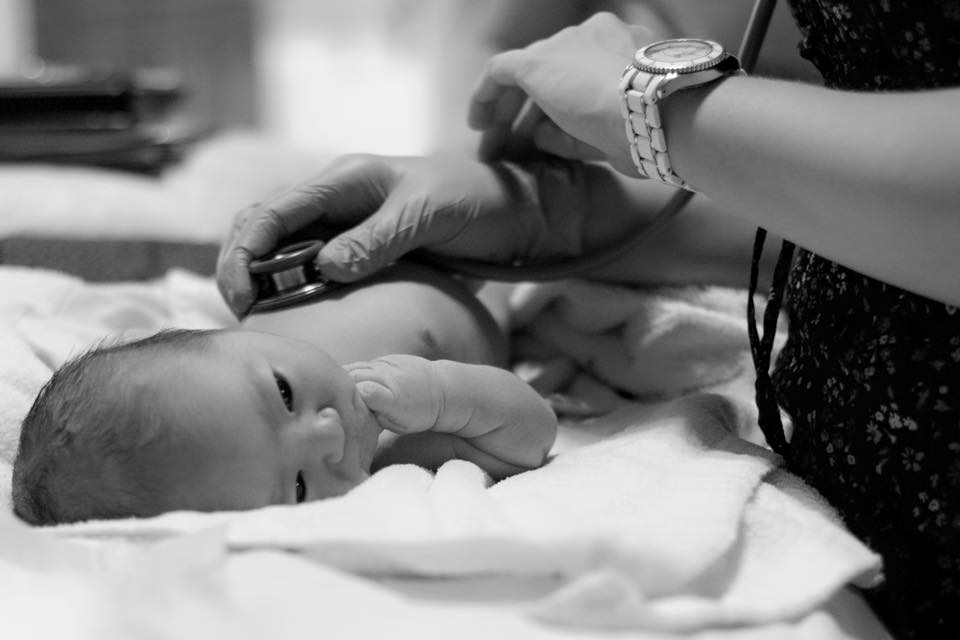Full-Spectrum Maternity Care
Your birth, your way.
Midwifery care is holistic in nature, grounded in an understanding of the social, emotional, cultural, spiritual, psychological, and physical experiences of all humans.

Comprehensive
Maternity Care Packages
Homebirth Package
$5000 fee includes:
- all prenatal visits
- in-person childbirth class
- 24/7 on-call availability
- labor + birth attendance by two midwives
- waterbirth tub + setup /cleanup
- newborn care until 6 weeks
- postpartum care until 12 wks
Birth Center Package
$6000 fee includes:
- all of the above
- access to Midtown Birth Center for labor, delivery, and immediate postpartum care
- birth supplies (no birth kit purchase required)
- waterbirth supplies
Additional fees:
- lab fees [$175]
- ultrasounds [$160+]
- birth kit [$55]
- waterbirth supplies [~$100]
Discounts Available:
- cash pay discount: $250
offered to those who pay their balance entirely with cash - repeat client discount: $250
offered to clients who have had Rebecca as their midwife with a previous pregnancy
What Prenatal Care Looks Like
Appointments are 30-60 minutes long, depending on how many questions you have.
You won’t feel rushed, and you will have plenty of time to discuss any concerns or questions you have regarding your pregnancy and upcoming birth. Children are very welcome at prenatals– there are quiet toys available, and kids are always included in the process (getting to help listen to the baby, etc.)
Throughout your prenatal care, we will be screening for potential complications using basic physical assessment, assessing baby’s growth through palpation and measuring fundal height, assessing heart tones, blood work, urinalysis, and further testing as necessary or desired.
I typically use a doppler to listen to baby’s heart tones, but I do have a fetoscope and pinard horn available, if you wish to avoid ultrasound waves prenatally. Care can begin as soon as you decide you want me to be your midwife– I typically recommend your first prenatal visit around 10-12 weeks, but this varies widely from family to family.
Prenatal Care Schedule
+ 8-27 weeks [every 4 weeks]
+ 28-36 weeks [every 2 weeks]
+ 37-42 [weekly]
Initial Prenatal Visit (90 mins)
+ Review of health and obstetrical history
+ Obstetrical exam (listening to baby’s heartbeat and fetal growth check)
+ How to maintain a low-risk pregnancy (herbal, nutritional, and self-care counseling)
+ Initial lab work
+ Review and sign documents and consents
Routine Prenatals (60 mins)
+ Vitals
+ Fetal growth check
+ Listen to baby’s heartbeat
+ Nutrition and movement counseling
+ Discuss all questions, or concerns in depth
+ Review labwork & ultrasound results
+ Birth and postpartum preparation
34-Week Home Visit (60 mins)
+ All components of routine visit
+ Tour of your home
+ Planning for the big day, review of your birth plan and preferences, review of transport procedures
+ Birth kit and supplies review
[this planning visit is done at the birth center for birth center clients]

Midwifery Care During Your Labor + Birth
+ 24/7 on-call support from 37 weeks to 42 weeks.
+ Continuous in-home or birth center support (clinical, physical, mental, emotional) from active labor to birth, and into the immediate postpartum period.
+ Two midwives will be present at your birth. Usually I arrive first, and the second midwife arrives closer to pushing.
+ Newborn exam + breastfeeding support during immediate postpartum.
+ Support is individualized to the preferences/informed decisions we decide on together prenatally.
As during your prenatal care, your midwife will work proactively during labor and birth to prevent complications, and will also be doing basic screening of your physical well-being as needed; monitoring blood pressure + other vitals.
We will monitor your baby’s heartbeat with a doppler at least every 30 mins in active labor, every 15 mins in transition, and every 5 mins during pushing [more frequently if indicated].
On arrival, your midwives will set up supplies and emergency equipment and suggest positions for comfort and ideal baby positioning. I often provide emotional support, talking you through contractions, offering back pressure and more [although a doula can do this more consistently– consider hiring one if you think you will want significant emotional support].
While rarely needed, we bring the same first-line emergency supplies and medication that would be used in a hospital. When birth doesn’t go as planned, I offer a supportive transition to hospital-based care when needed, including in-person accompaniment.
Equipment Available to Clients:
+ waterbirth pool
+ birth stool
+ peanut ball
+ rebozo
+ TENS unit
Immediate Postpartum Care
As soon as baby is born, they will come right up on your chest. We will check their heart rate and respirations while they’re in your arms. If any suctioning is necessary [it usually isn’t], it can be done right there on your chest.
Equipment for resuscitation [including oxygen] is always set up but rarely needed. Every midwife at the birth is NRP-certified and if necessary, resuscitation can typically be initiated with the cord still attached and baby right next to you.
Delayed cord clamping is standard, we will wait until the cord has stopped pulsing to clamp and cut.
I highly encourage staying skin-to-skin with baby during the “golden hour” immediately after birth.
We are available to assist with breastfeeding and will check yours and baby’s vitals every 15 minutes, assess bleeding, and begin clean-up while you enjoy meeting your baby face-to-face.
After this initial hour of bonding, we will do the newborn exam, checking for normal development and reflexes. We will weigh and measure baby, as well as put their footprints on a keepsake birth certificate [the official birth certificate will be filed with the state as well]. Vitamin K and antibiotic eye ointment are available for baby.
When you are ready, we can check you for lacerations, discuss repair, and suture with numbing medication if needed. We ensure you have eaten, are stable, and provide you with postpartum instructions before we pack up and head out.
Postpartum Care
One of the greatest advantages of midwifery care is not having to leave your home after your birth. Most cultures recognize that women need at least two weeks to recover from birth, and during this time it is important to rest and integrate, and bond with your baby.
I will come check on you and baby about 24-48 hrs after birth (birth center clients too!); this home visit will include:
+ newborn metabolic screening [PKU]
+ congenital heart disease screening [CCHD]
+ weight check for baby
+ breastfeeding assessment
+ assessment of your physical + emotional well-being
+ birth certificate and social security paperwork
Postpartum Care Schedule
+ 24 hrs – home visit
+ 5-7 days – telehealth [or office visit if desired]
+ 2 weeks – office visit
+ 6 weeks – office visit
+ 12 weeks – office visit [PAP available]

What If Complications Arise?
Midwifery very much focuses on prevention rather than damage control. Thus, we will spend a lot of time discussing nutrition, supplements, exercise, and emotional preparation to keep you and your baby in optimal health — this greatly reduces any chances of complications.
Most home births go smoothly without the need for any medical interventions or hospital transfers. Since a low-risk pregnancy is required to qualify for a home birth, any emergencies that occur can usually be handled by the midwife at home.
Sometimes, despite careful planning and preparation, a hospital transfer might be necessary. The decision to transfer during labor is never taken lightly and is one your midwife will carefully consider with you, prioritizing the safety of both you and your baby. At Metamorphosis Midwifery, I average around 10% of clients transferring during labor with a 6% cesarean section rate.
Prenatal Transfers
If a transfer becomes necessary prenatally, I will help facilitate this transfer by forwarding all records to your receiving provider. If this occurs before 37 weeks, you will receive a refund for the birth/on-call portion of your care package.
If transfer becomes necessary after 37 weeks or in labor, I will accompany you and provide support throughout the birth. I will resume postpartum care as soon as you are discharged.
What might necessitate transfer? For instance, if your anatomy ultrasound shows that baby might require extra medical attention after birth, we can transfer your care to a hospital system equipped to meet that need. Or, we might make a similar shift if a condition such as pre-eclampsia develops which would increase your risk during labor or birth.
For a full list of conditions precluding midwifery care in the state of Oklahoma, click here.
It’s important to note that as midwives, we don’t unilaterally make such decisions on behalf of our clients. Rather, we start a conversation when the need arises and move forward in full collaboration with the client, ensuring both you and baby receive the support needed.
Transfers in Labor
While most home births progress beautifully, some births can last longer than expected and require additional support. One of the most common reasons for transferring during labor is prolonged labor that leaves you exhausted and needing extra tools. In these cases, we accompany you to the hospital to continue supporting you as you get the additional resources you need.
Less often, we may see signs that you or baby aren’t tolerating labor well. If a birth complication like this occurs, we don’t wait until the situation becomes serious; we accompany you to the hospital for appropriate care right away.
It’s important to note that home birth transfers are rarely emergencies. Midwives are trained to recognize “yellow flags” — early signs that something isn’t progressing well. This allows us to act calmly and decisively, ensuring a smooth transition before an emergency develops.
Transfers in the Immediate Postpartum
A postpartum transfer can become necessary for either you or baby. For you, this might be due to extensive bleeding or a severe tear requiring hospital-level repair. For newborns, transfers might occur when a baby needs extra support during the transition from intrauterine to extrauterine life.
While it’s normal for newborns to need a little time to transition to the outside world, some babies take longer to stabilize. As midwives, we’re trained in what’s normal and what isn’t, and we recognize when a newborn requires additional care or monitoring.
How Are Complications Handled?
One of the biggest misconceptions about home birth complications is the idea that they always involve dramatic, emergency scenarios. In reality, most transfers are calm and deliberate.
We bring a wealth of tools and training to every birth. Our birth bags are stocked with effective herbal treatments, medications for managing bleeding, oxygen, and resuscitation equipment. If a transfer becomes necessary, I don’t just send families off — I go with them. I stay by your side, advocating for your preferences and providing continuity of care in a vulnerable moment.

Have More Questions?
Meet with Rebecca virtually or at her office for a 30-minute consultation to ask any questions you may have about midwifery care. We’ll discuss if this model of care is the right fit for you and your family, what you can expect, and get to know each other!
